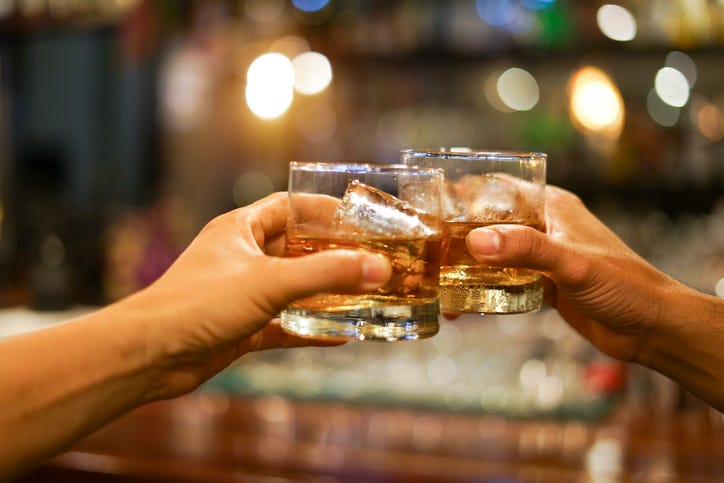
Before you knock back that ice cold beer or craft cocktail, consider this: The way you drink alcohol can affect how quickly your brain ages.
That's according to health experts talking with the website Eat This, Not That.
Drinking alcohol with the sole purpose to get intoxicated is the biggest way your drinking habits can affect your brain, according to Dr. William Li.
"High levels of alcohol can kill brain neurons in short order, so drinking excessively to get drunk can cause brain damage," Dr. Li told the website. "The toxic effects of alcohol will also damage your other organs, like your liver and heart."
Drinking alcohol on an empty stomach is also a bad idea for the brain, Li added
"Drinking with food slows down absorption in the stomach, and food also dilutes the alcohol content, so levels do not build up as quickly or at such high levels in the blood and brain for each drink," he said.
Alcohol is absorbed into the bloodstream so quickly on an empty stomach, Li explained, that it can start building up in the brain in just five to ten minutes after a sip.
Drinking by yourself or drinking a glass or two every night can also impact your brain health. The bottom line, Li said, is that excessive alcohol consumption leads to premature brain aging and cognitive disorders.
Of course, non-alcoholic drinking habits can also alter the brain.
Drinking a beverage high in sugar is one of the worst habits, as many studies have linked excessive sugar consumption with cognitive impairment. Beverages with too much caffeine can also damage your brain.
"One study found that high coffee consumption, above 6 cups per day, was associated with smaller brain volume and increased risk of dementia," Serena Poon, certified nutritionist and a celebrity chef, told Eat This, Not That.
It's not always about what you are drinking, but sometimes what you aren't -- in this case, water.
"Researchers have found that even mild dehydration can impact cognitive function," Poon said.
The brain is made up of nearly 70% water, so staying hydrated is essential to brain health, Poon added.
At the end of the day, experts agree to remember one golden rule: Enjoy everything in moderation.


